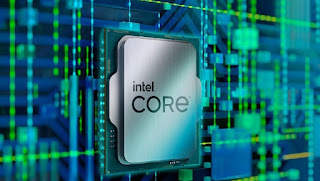Representatives from Intel are said to be visiting the TSMC office in Taiwan to seek confirmation regarding the 3nm chip.
The certainty in question is a guarantee from TSMC that they will have sufficient 3nm chip production capacity to meet Intel's orders. One of the chips that will reportedly be made with this 3nm process is Apple's A16 Bionic.
So what Intel seems to be doing is making sure TSMC can set aside 3nm chip production capacity for Intel, and not give it all to Apple. This is because TSMC has recently been accused of often worrying about Apple's chip production capacity.
Previous reports also stated that Apple already has all of the initial production capacity for 3nm chips, meaning Intel will only get 3nm chips in 2023.
Regarding chip production, Intel is actually different from Apple, which only designs chips but can't produce them at all. Intel has its own chip manufacturing facilities, but their technology lags far behind those of TSMC -- and Samsung.
For this reason, in mid-December, Intel executives are said to be leaving for Taiwan to meet with TSMC. The main agenda is to explain the number of 3nm chips Intel will need.
What's more, Apple now has its own additional chip, not just the A series chip for iOS devices, but the M1 chip for Mac devices, including the M1 Pro and M1 Max used in the latest generation of MacBook Pros.
Then Apple also plans to use its own 5G modem chip, and TSMC will produce the chip. This means that Apple is increasingly dependent on TSMC.
So it is not surprising that TSMC is now the largest chipmaker in the world, with revenues reaching USD 45.51 billion in 2020 and profits reaching USD 17.6 billion. TSMC's valuation alone reaches USD 565 billion.


